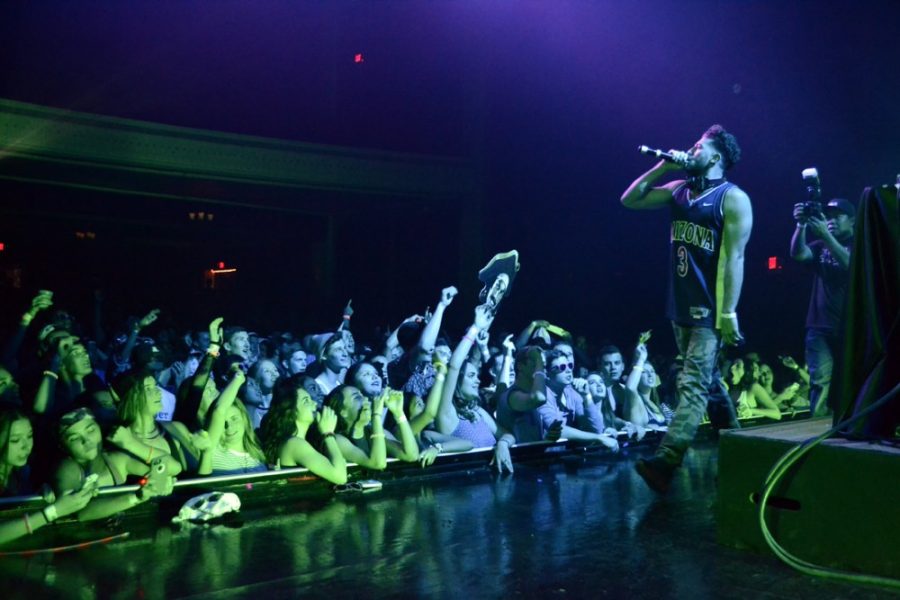A handful of the UA’s best disc jockeys and electronic dance music producers competed Thursday at the Rialto Theatre in the Campus DJ competition.
Campus DJ is an annual musical competition designed specifically for students whose laptops and sound mixers serve as their main instruments. The competition travels around the country and makes stops in places such as Washington, Texas and New York along its search for the most talented student DJs out there.
The tour is further broken up into different regional segments; after the university winners are chosen from their regions, they duke it out against each other to find out who the best DJ really is.
In order to compete, each interested DJ had to post a sample of their work to the competition’s website, along with a small profile about themselves. Site visitors were then able to listen to their samples and vote for the DJs that they wanted to see advance to the live competition, and the top four DJs were given spots in the competition.
The UA’s portion featured DJs Anthony Natoli, James Christian, Izzoh and Le Phan. Each was given 10 minutes to perform and showcase their talent, which was a bit of a challenge for some of the contestants.
For Le Phan, otherwise known by his real name Stephan Salas, a pre-computer science sophomore, Campus DJ was his first competition. He said that having such a short time to present his skill set and show the judges everything he could do felt limiting.
“Normally, a DJ plays for an hour, two hours, and that’s your typical set,” Salas said. “So, 10 minutes is very little time.”
Izzoh, whose real name is Rifat Assour, also found the time limit restricting. A general studies senior, Assour has been practicing and tinkering with DJ-ing for almost his entire four years of college, and Campus DJ is just one of several DJ competitions that he has been in. In a previous competition in which Assour opened for the popular EDM artist and DJ Arty, he was given an hour and 15 minutes to perform, which he said he believed gave him a better chance at exhibiting his talents.
After each DJ’s 10-minute set, they were judged in four different categories. The first three were the traditional parameters of originality, technicality and stage presence, but the fourth was based on the audience’s reaction to the DJ through social media.
Campus DJ partnered with several large sponsors, one of which was Tinder, the popular matchmaking app. For this last category, Campus DJ had each DJ create a Tinder page before the competition began. While they were performing their set, fans could go on Tinder, find the artist and like them. Each of these likes would translate into one point going toward the final judging category.
Campus DJ often has famous guest judges from the world of EDM and DJ-ing, and Arty was the UA’s. Originally from Russia, Arty began producing his own music at 19. Since then, he continues to make music, create remixes of songs from various genres and performs live around the world. He also has had his own radio show and podcast.
After the judging and set performances were complete, Salas was announced as the winner of UA Campus DJ.
“This is a memory I’ll keep for the rest of my life,” Salas said. “There were over 1,000 students at the Rialto that night, and everyone was going crazy. It was quite an experience.”
As the winner of the local competition, Salas moved on to the regional stage that took place at Arizona State University on Friday. He didn’t win the competition but said the ASU venue was much less inviting than the Rialto Theatre and had a smaller crowd.
Although it’s been a short time since the competition, the contestants are already receiving a large amount of publicity from the event. DJs such as Salas and Assour often produce their own music as well, so finding people interested in helping distribute that music is important.
“I just want more and more people listening to my music,” Assour said.
Assour also had advice for students interested in DJ-ing and producing.
“You’ve just got to keep trying,” Assour said. “It’s not a fast process, and it definitely takes a lot of hard work.”
_______________
Follow Victoria Pereira on Twitter.



